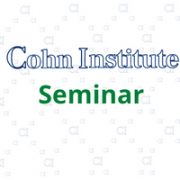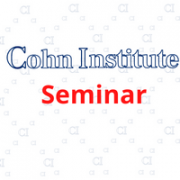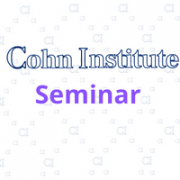Research Seminar 30.5.2022: Funkenstein Lecture
Funkenstein Award for 2021-2 academic year will be granted to Micha Peled for his Dissertation: Conjecturing Beliefs: Abductive Reasoning in Monetary Policymaking Monday May 30th, Gilman 449, 18:00
Ofer Gal - University of Sydney
Descartes, Optics and Human's Place in the World: A Case for Secular Theology
A Tribute to Amos Funkenstein
On May 6, 1643, Princess Elisabeth of Bohemia submitted to René Descartes the question that would become a corner stone of modern philosophy: “how [can] the soul of a human being (it being only a thinking substance) … determine the bodily spirits, in order to bring about voluntary actions?” This has become the accepted interpretation for Descartes’ legacy, but many of his contemporaries understood him radically differently. What they saw was not a philosophically motivated ‘substance dualism’ but an attempt to come to terms with the acute implications of applying the new natural philosophy to humans, and specifically – with the estrangement between humans and world implied by the new theory of vision. If the eye was a mere camera obscura, as Descartes taught, following Kepler, and if vision was merely a causal process deprived of any inherent cognitive value, were we not locked behind a screen – the retina – on which meaningless stains of light were imprinted? I will discuss some of Descartes’ evolving answers to this conundrum and some of his contemporaries’ surprising alternatives.




